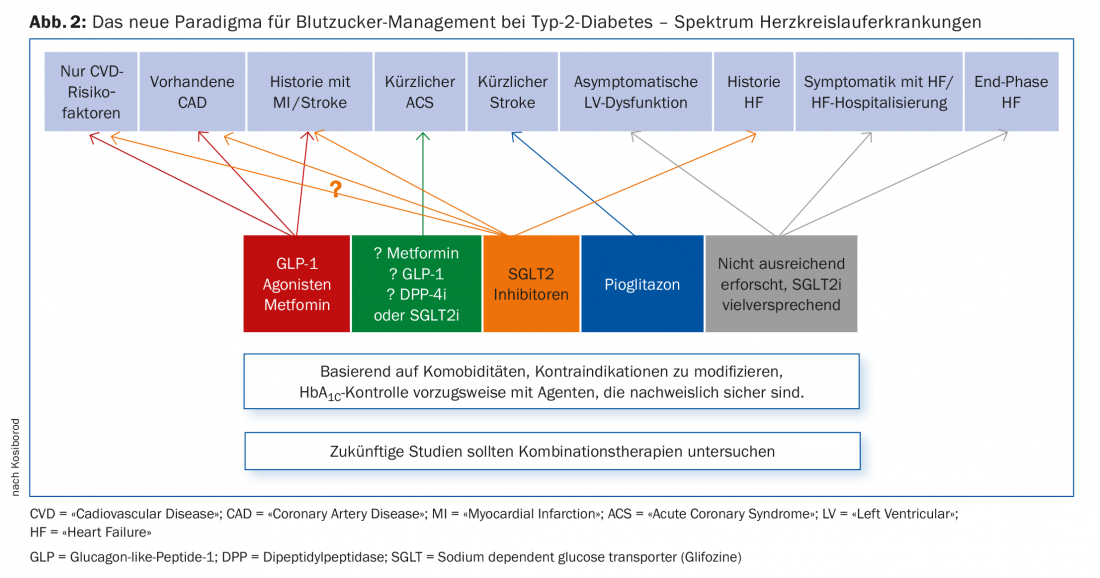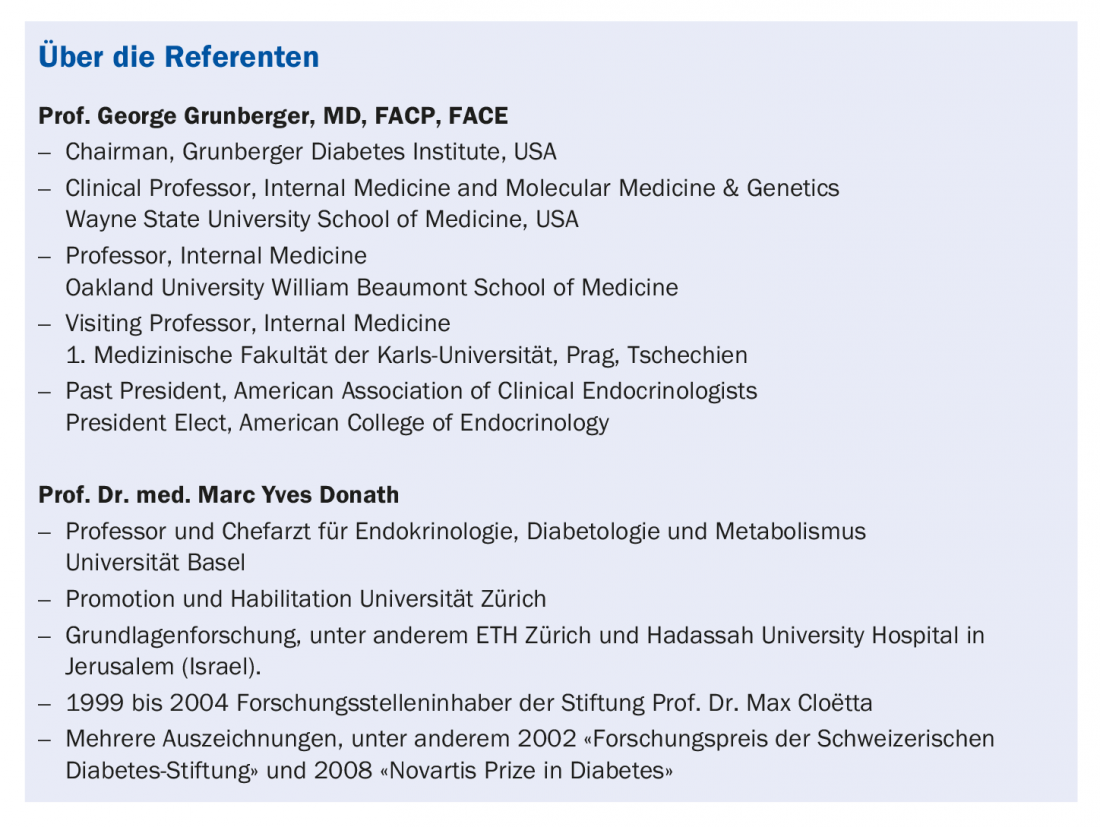Aggressive therapy or conservative? Renowned scientists – Prof. George Grunberger and Prof. Marc Donath – spoke about the status and future possibilities of diabetes therapy.
Prof. George Grunberger, Wayne State University Detroit (USA) and others, and Prof. Marc Donath, University Hospital Basel, spoke about the status and future possibilities of diabetes therapy. Prof. Grunberger postulated against the background that type 2 diabetes often shows no symptoms in the early stages, an aggressive form of therapy that addresses the possible complications such as renal insufficiency, vascular disease of the eyes or peripheral arterial occlusive disease at an early stage. Prof. Donath was cautious in his assessment of this paradigm shift from “treat to fail” to “treat to target”. Waiting until blood glucose levels rise before intensifying therapy is still the more common family practice today. The first step is to examine whether lifestyle changes – more exercise, reduction of overweight, balanced diet – bring about a change in the HbA1C target value. For an early more aggressive therapeutic approach, Donath said, the data are still unclear.

Prof. Grunberger also focuses on prevention, but weights the impact of complications as the main risk and health care cost driver. Therefore, he argued, early intervention to prevent complications is another key element of therapy. “Comprehensive approaches are needed to prevent cardiovascular and other complications. It is not useful to focus only on HbA1C until the patient suffers a complication,” he reiterated. Grunberger anticipates that more specific biomarkers will be known in the future to predict complications. “This will allow us to treat patients in an increasingly personalized way based on individual risks.” This approach is followed by the current recommendations of the SGED (Swiss Society of Endocrinology and Diabetology) with their focus on best individual therapy [4]). Grunberger goes further in his prognosis for the future: “The choice of which drug to use must be tailored to the patient’s individual risk factors.” There is no one-fits-all approach to diabetes treatment, Grunberger says; instead, it must be understood as a highly complex disease. The therapeutic approaches of the future point this way to data-based, precise and individualized therapy.
Diabetes therapy 2027
In the future, patient profiling will enable treatment decisions based on comprehensive data. Developments are at a stage where diabetes technologies are on the verge of convergence (Fig. 1) – devices and data will merge to create new therapies that enable higher precision and more automation (see box “Recommended reading on the topic”).

On the one hand, advances in digital medicine are playing a major role: for example, microchips that can control precise drug delivery when transplanted under the skin. Sensors measure glucose, metabolites and vital signs in real time and transmit the data via app to the patient’s smartphone or to the doctor. Genetic factors are to be identified using digital analytics intelligence. In therapy, on this basis, agents can be assigned individually according to risk factors, comorbidities, and contraindications after initial metformin, although research is still needed in the area of combination therapies (Fig. 2) – the unanimous conclusion of the speakers.

While Grunberger decisively criticizes metformin’s role as monotherapy as too limited, he sees increasing evidence that it will continue to have relevance in the context of the microbiome, which it influences. Research on the microbiome also showed surprising effects regarding insulin sensitivity after stool transplantation in metabolic, obese patients [5] – an indicator for another therapeutic strategy.

Prof. Grunberger predicted that existing therapies will become safer and develop a longer duration of action, and their handling will become increasingly easier for physicians and patients, for example through oral dosage forms for insulin and GLP-1 analogues. Combination therapies, administered in a tablet or injection, will contribute to compliance, as will “smart insulin,” which is delivered in doses from capsules or via patches depending on glucose concentration, allowing continuous glucose regulation. Hyper- or hypoglycemia are thus eliminated and insulin injections are no longer necessary. These scenarios are not expected to wait until 2027. Further research is devoted to β-cell disease and is examining the possibilities of islet cell transplantation.
Prof. Donath shared Grunberger’s optimistic outlook, but remained clear in his message: There will only be fewer patients in 2027 if preventive measures are effective!
References:
- IDF Diabetes Atlas Seventh Edition – Country Report Switzerland
- Wieser S, Raguzzi M, et al: The cost of non-communicable diseases in Switzerland. Federal Office of Public Health FOPH, Bern, 2014; 63.
- Boehringer Ingelheim Diabetetes Key Note Session 2017, November 14, 2017, Bern
- Diabetes Update Refresher: The current Swiss therapy recommendations. CardioVasc 2018; 17(1): 34-36. www.medizinonline.ch/artikel/die-aktuellen-schweizer-therapieempfehlungen
- Kootte RS, et al: Improvement of insulin sensitivity after lean donor feces in metabolic syndrome is driven by baseline intestinal microbiota composition. Cell metabolism 2017; 26(4): 611-619.
HAUSARZT PRAXIS 2018; 13(3): 8-9











